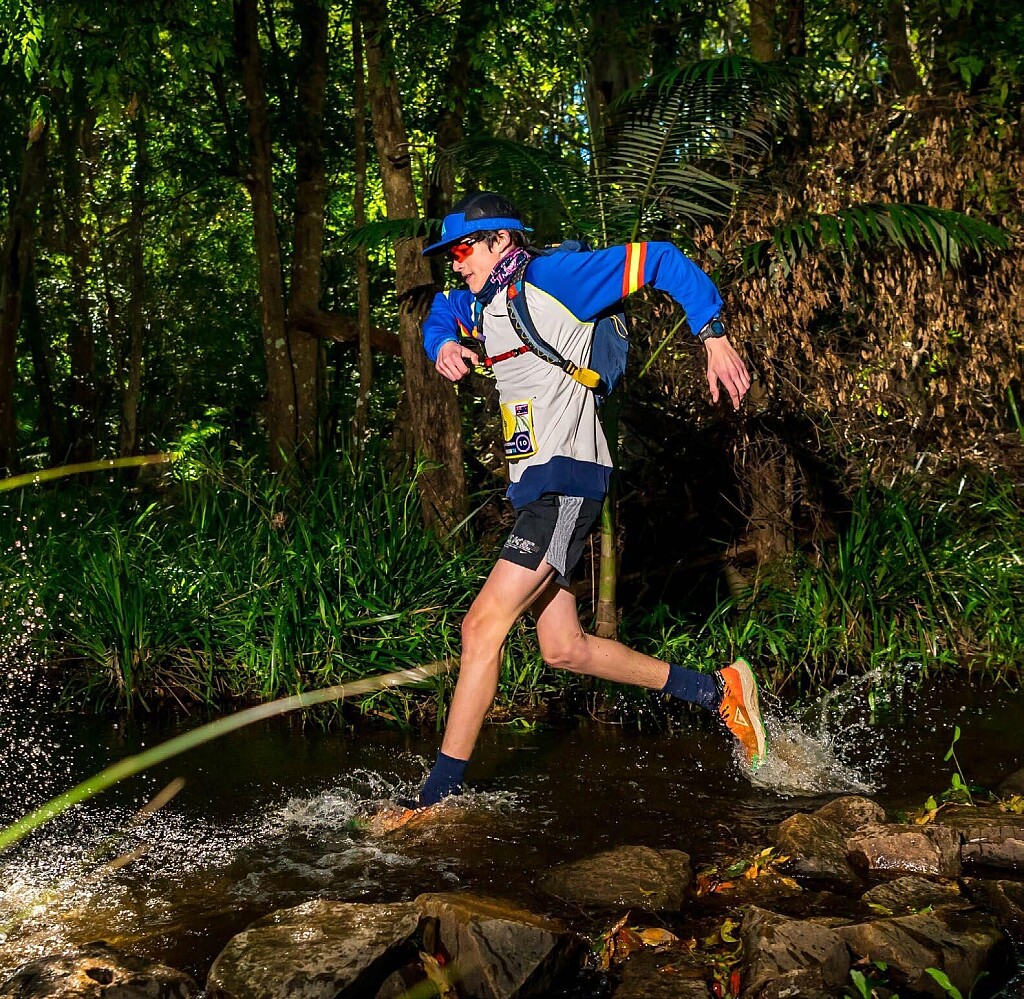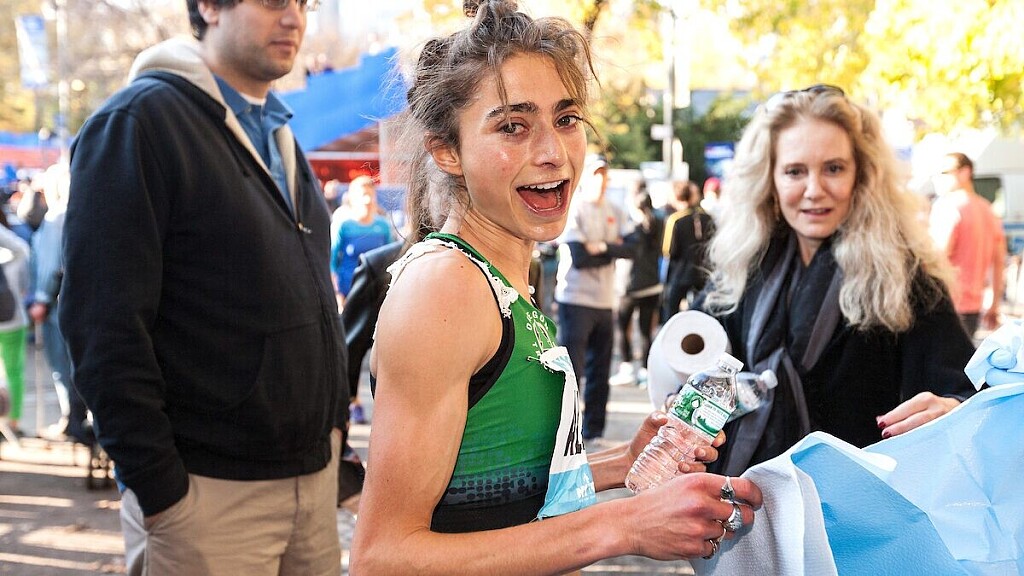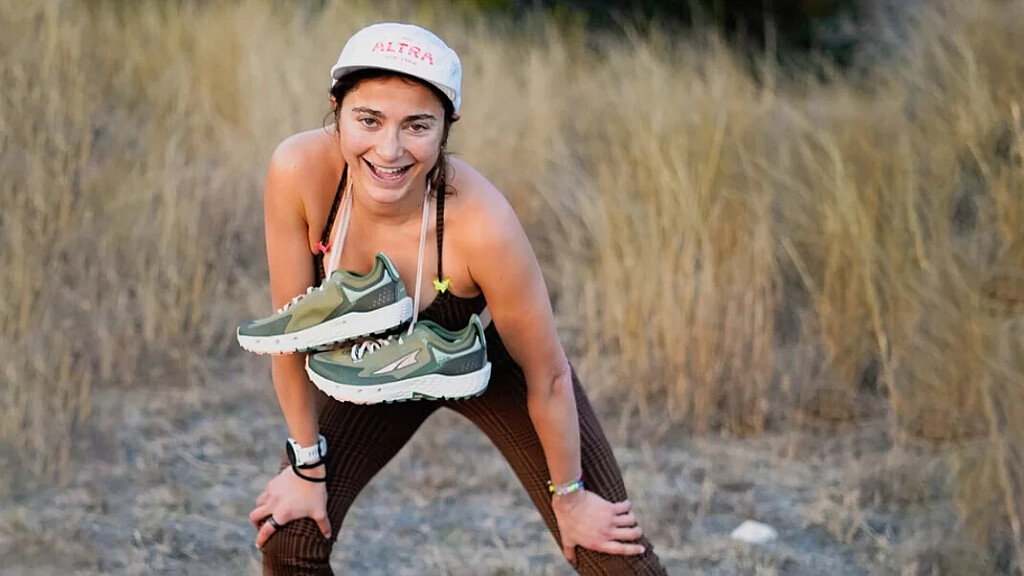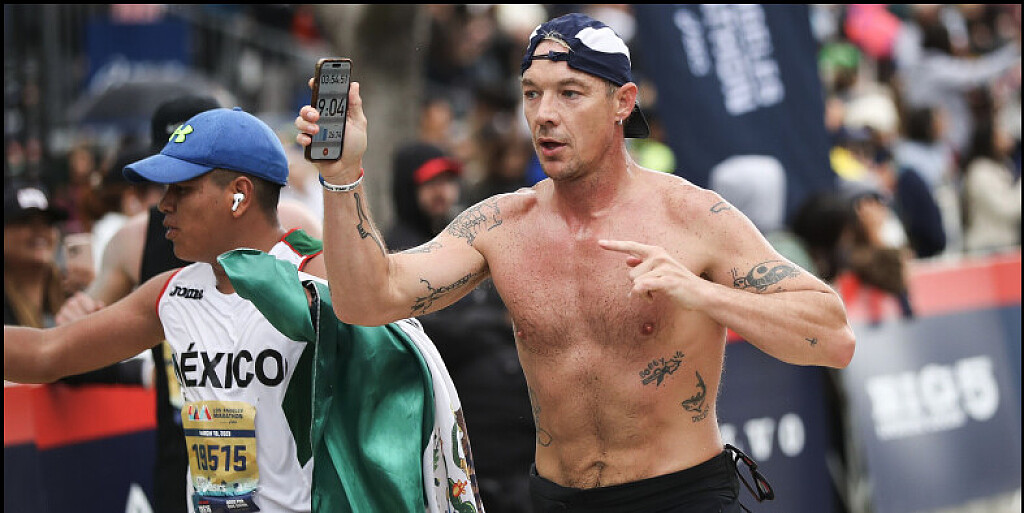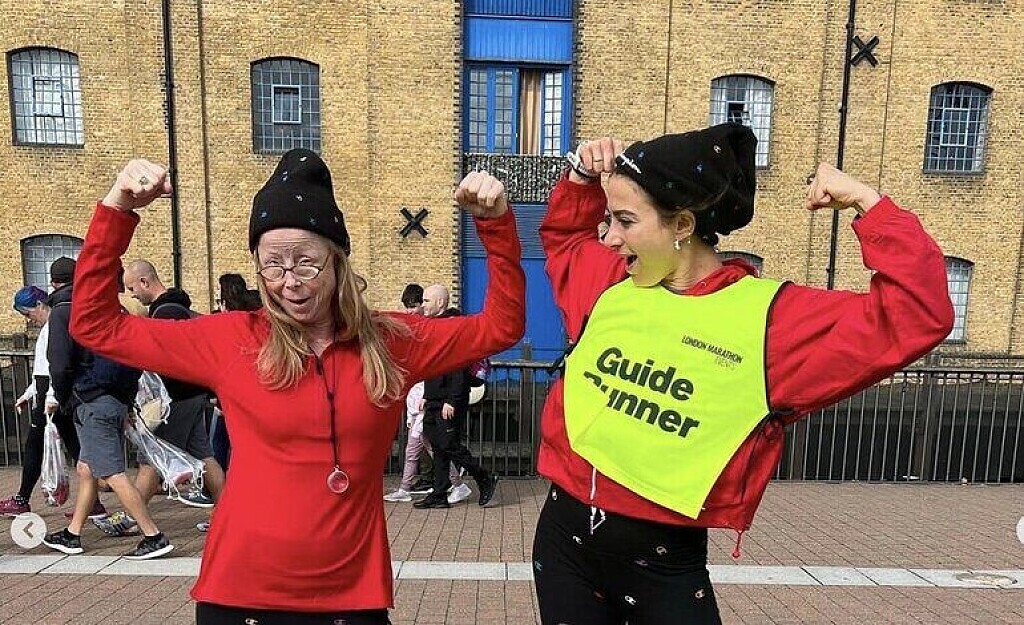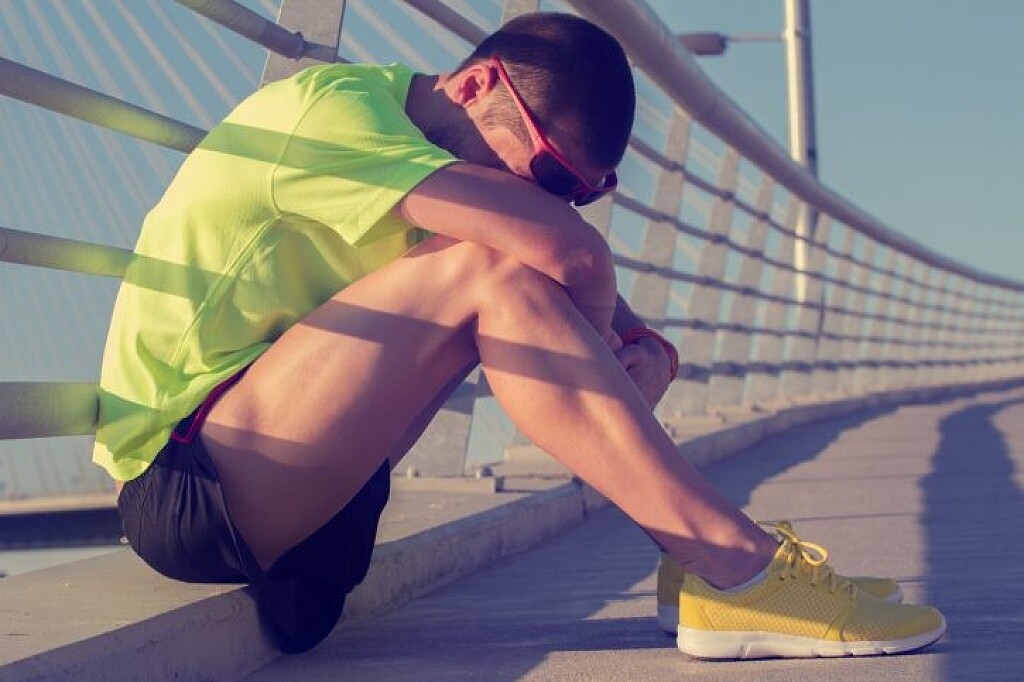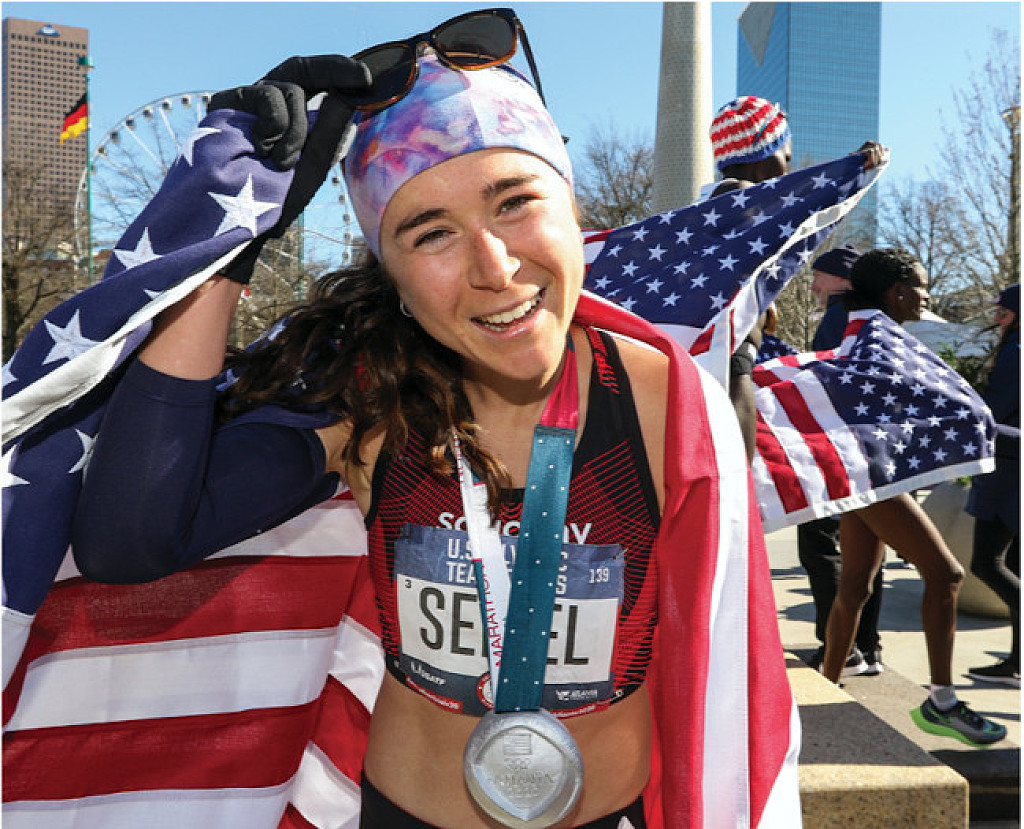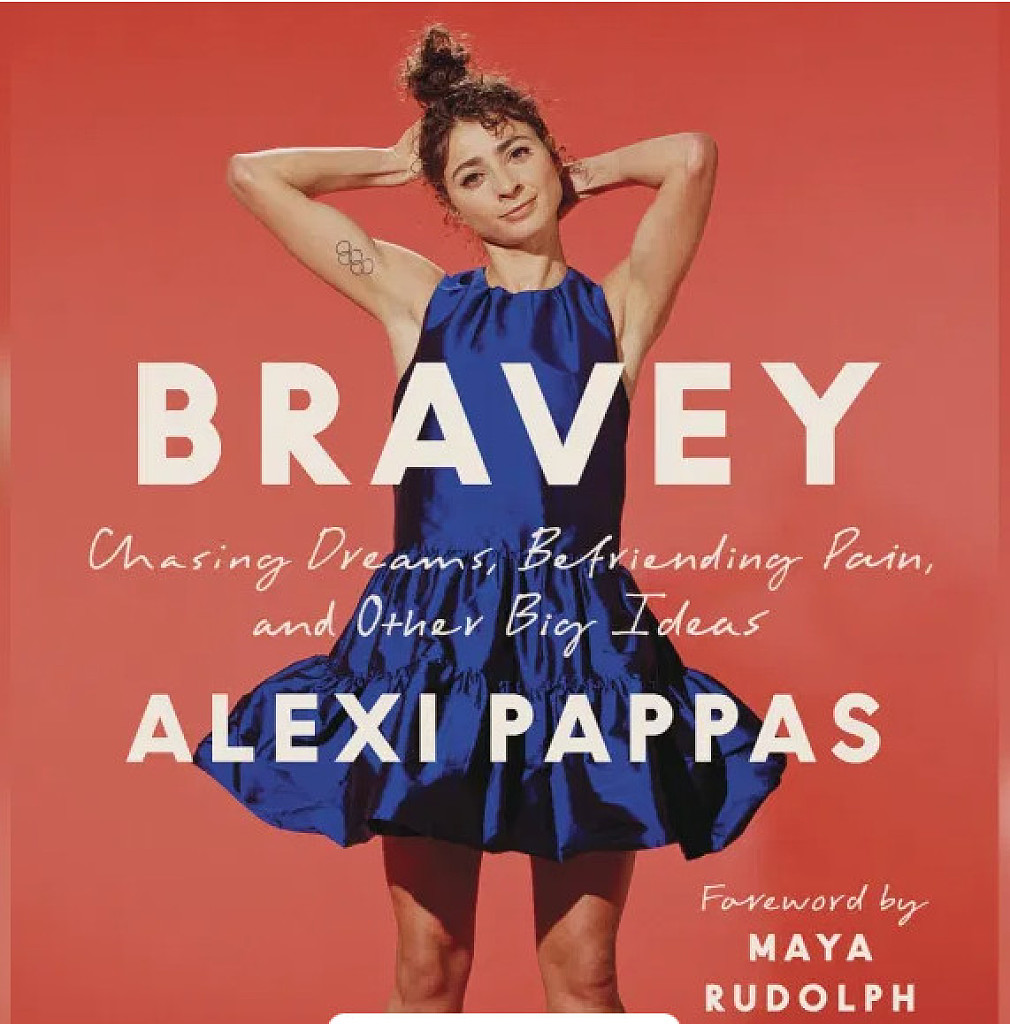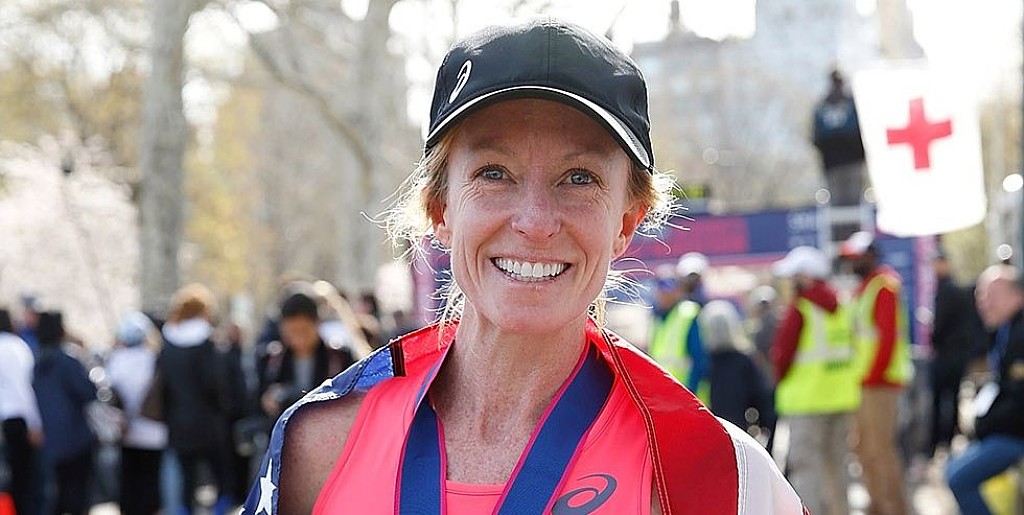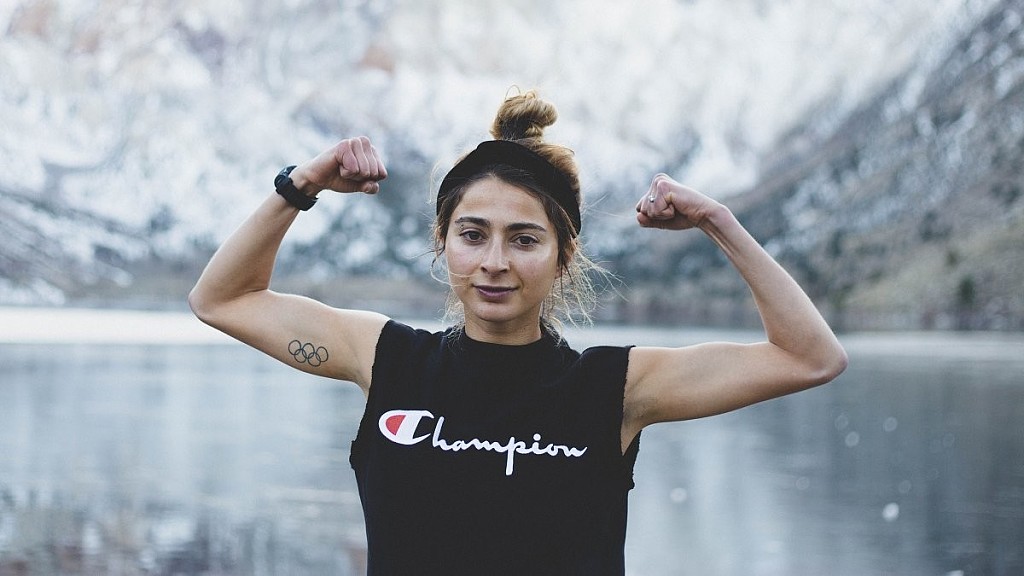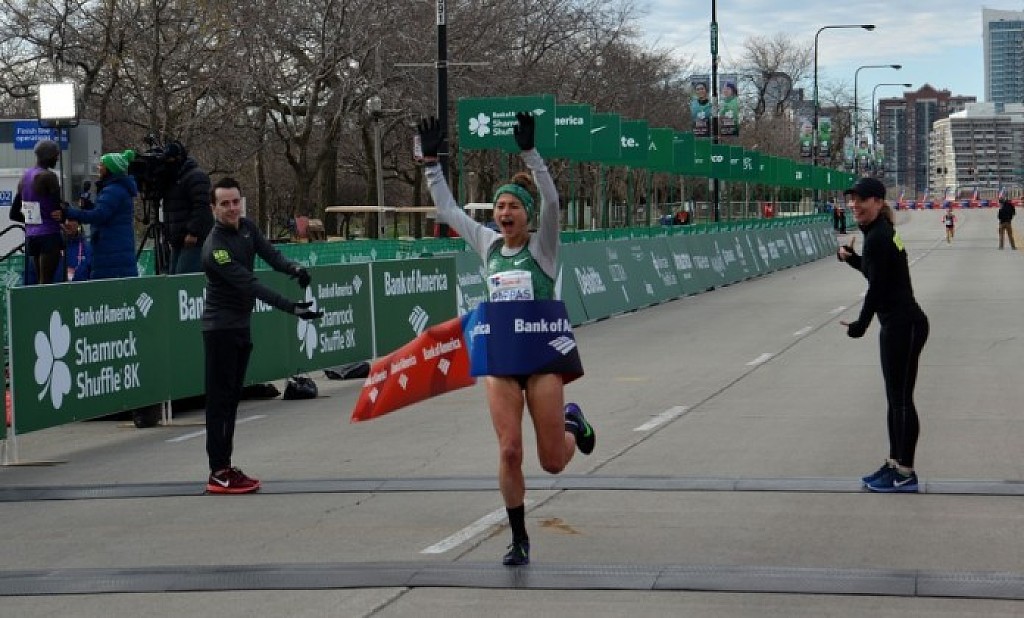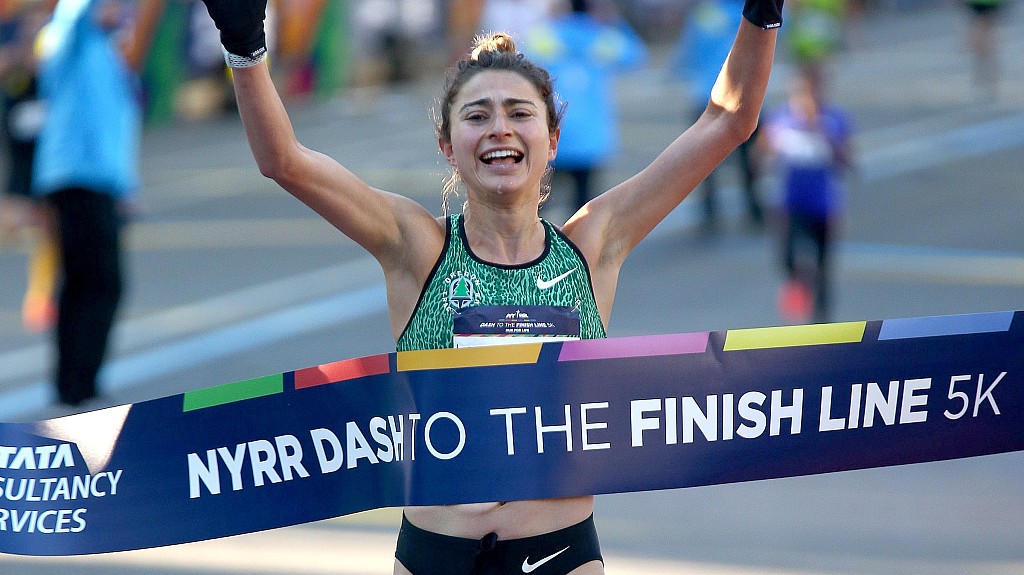Running News Daily
Running News Daily is edited by Bob Anderson. Send your news items to bob@mybestruns.com Advertising opportunities available. Train the Kenyan Way at KATA Kenya and Portugal owned and operated by Bob Anderson. Be sure to catch our movie A Long Run the movie KATA Running Camps and KATA Potato Farms - 31 now open in Kenya! https://kata.ke/
Index to Daily Posts · Sign Up For Updates · Run The World Feed
Articles tagged #Alexi Pappas
Today's Running News
Should trail running be an Olympic sport?
Did you know that off-road running was part of three historic summer Olympic Games, including the 1924 Olympics in Paris? One hundred years on, runners from four different clubs in Britain have come together to launch a campaign to bring trail running (as we now call it) back to the Olympics. The next Games to include new sports is Brisbane 2032, and the group of passionate trail runners feel strongly that trail running deserves a spot.
“At Paris 2024, four new sports are being added that include breakdancing, surfing, skateboarding and sport climbing,” runner Jimi Harrison said in an interview with British media outlet The Star. “We feel that new Olympic sports should reflect the trends and popularity of the current day and believe the time has come for trail running to be adopted at future Olympics.”
To raise awareness for the cause, Harrison and the group ran a relay of more than 455 km, from London to Paris. Their feat ended on Sunday in the French capital.
Backed by running shoe brand Merrell, the group are calling on Olympic decision-makers. They have written an open letter to representatives of the International Olympic Committee (IOC) and International Trail Running Association (ITRA) to support their cause. (Merrell recently signed Olympian Alexi Pappas to its athlete roster. Pappas, who raced the 10,000m at Rio in 2016, setting a national record for Greece, ran two big trail ultras in 2023: the Black Canyon 100K and the Leadville 100.)
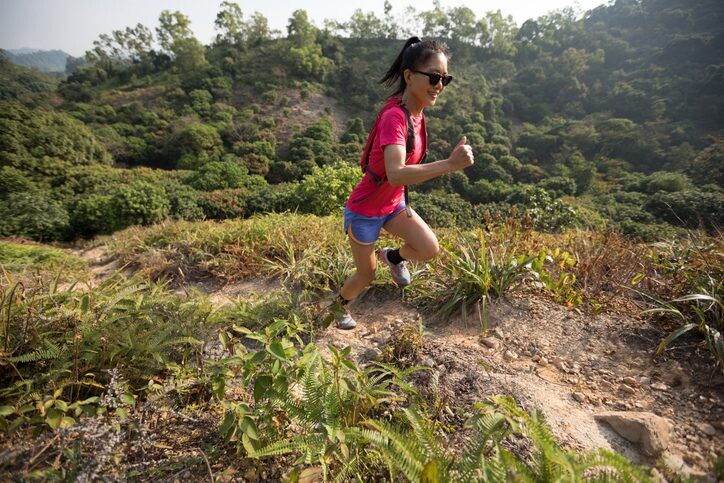
Some would argue that cross-country running is a more obvious fit for inclusion in the Olympics. With shorter, looped, spectator-friendly courses, cross-country could be more attractive to broadcasters, thus generating more interest. And cross-country usually features track runners. There is less crossover between track and trail running, though it’s not unheard of for track runners to transition to trails, as we have seen.
This is not the first attempt to bring trail running to the Olympics. In 2021, a trail running company from Spain launched its own campaign to bring it to the 2028 Olympics in Los Angeles. (They were not successful.)
Trail running has increased significantly in popularity in recent years, thanks partly to events like the Barkley Marathons, UTMB (Ultra-Trail du Mont-Blanc) and the Golden Trail Series, which make international news headlines.
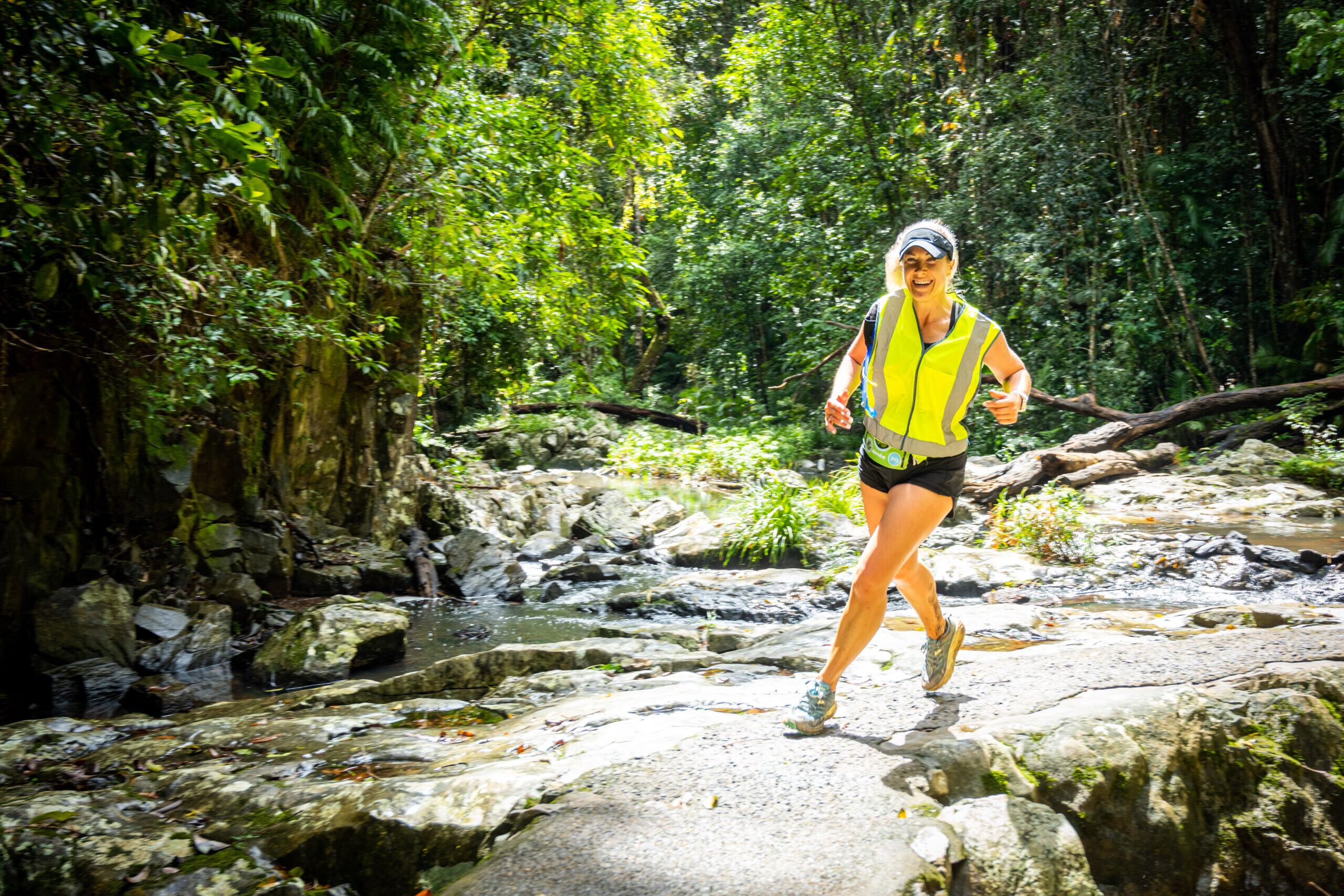
by Claire Haines
Login to leave a comment
Four runners share their mental health stories
Many runners find their sport is not only a way to gain physical resilience, but also a powerful ally in the path toward mental well-being. The road to mental health isn’t solitary, and witnessing others share their challenges and successes can be uplifting and inspiring.
From pros to amateurs, athletes are speaking out about their struggles and triumphs with mental health. Here are four runners to follow who are also mental health advocates.
1.- Alexi Pappas
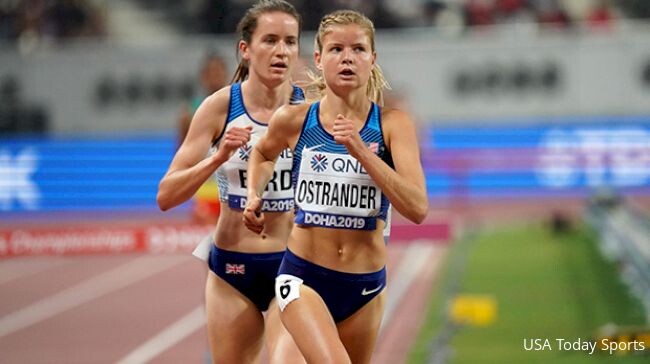
Pappas is known for being a remarkable athlete (she ran the 10,000m for Greece at the 2016 Olympics in Rio de Janeiro), but she also boasts credentials as a renowned author, filmmaker, and mental health advocate. Pappas opened up about mental health in 2020: after working toward and achieving her Olympic dreams, her mental health spiralled, and she was eventually diagnosed with severe clinical depression, which was compounded by injuries, a lack of sleep and her own reluctance to take a break from training.
Pappas authored her first book in 2021: Bravey: Chasing Dreams, Befriending Pain, and Other Big Ideas, highlighting her triumphs and challenges in sports and life, and encouraging readers to be “braveys” in pursuing their passions. She continues to advocate and be a source of hope to others on social media.”What if we athletes approached our mental health the same way we approach our physical health?” Pappas asks.
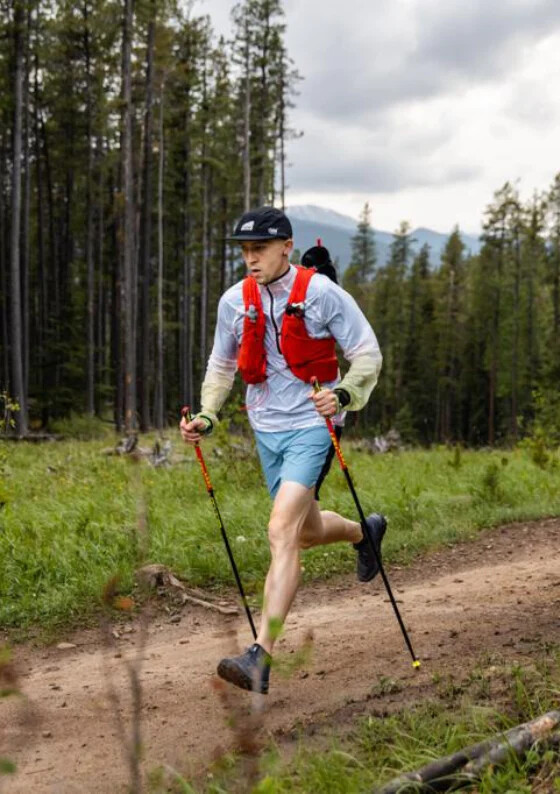
Former American steeplechaser turned elite trail runner, Ostrander uses her Instagram platform to share mental health and eating disorder awareness and advocacy.
In 2021, Ostrander returned to professional competition after being sidelined with multiple injuries for the previous 18 months. During this time, she was hospitalized for treatment of an eating disorder. Ostrander qualified for the U.S. Olympic Trials, where she ran a personal best of 9:26.96 in the 3,000m steeplechase, before deciding to take a year-long break from professional running to prioritize her own mental health.
Ostrander returned to racing in 2023, and made a shift to the trails, running to ninth place at the Mammoth 26K in California in September.
3.- Evan Birch
Canadian ultrarunner and mental health advocate Evan Birch shares an unflinching look at his mental health journey on social media as he works to destigmatize the conversation around mental wellness. Birch is a former 911 dispatcher from Calgary who has been running on trails for more than a decade, and who most recently conquered Western Canada’s first 200-mile race, The Divide 200, in September 2023.
A busy father to young children, Birch recently collaborated with filmmaker Dylan Leeder to create Running Forward, a documentary illuminating the intersection between running and mental health.”It is more important to me now that I meet the truth within me, than it is to make other people comfortable with how I am,” Birch says on social media. “The gifts I have received from allowing myself to be sad are so plentiful.”
4.- Denoja Uthayakumar
From Scarborough, Ont., Uthayakumar is no stranger to hardship, but she has taken her experiences and built a social platform where she can advocate for individuals from similar backgrounds. Uthayakmar is a cancer survivor, body positivity and mental health advocate and was Canadian Running’s pick for our 2023 Community Builder of the Year award.
Uthayakumar was born into a Tamil family, and was diagnosed with thyroid cancer at age five; she shares her physical and mental health challenges alongside the joy that running and the community around it bring to her. “This year pushed me. It broke me down. It challenged me to no end,” Uthayakumar says on Instagram. “It was hard, but I rose higher with my running journey, and was able to share more of my story during my healing while being a survivor.”
by Keeley Milne
Login to leave a comment
Always Up for a Challenging Adventure, Alexi Pappas is Running The Leadville 100
Alexi Pappas is a busy woman. She’s equally glamorous and raw. She’s perfectly grounded and living in a fantasy. As an Olympian, filmmaker, writer, and speaker, she’s rarely in one place for very long. And the Leadville Trail 100 race was very much not on her radar even two months ago. But then she got an email.
“My manager sent me a message in June saying, ‘Just got word that Coros has an entry for Leadville,’” she recalls. “‘Let’s discuss this week and if it makes sense to run. I think it would be fun and epic, but let’s do whatever feels best and right to you.’”
For the 32-year-old Pappas, it feels like there are two kinds of goals to shoot for—the ones you set for yourself that feel like they were born with you. And then the ones that take you completely by surprise. Leadville is the latter.
In the 2016 Rio Olympic Games, Pappas set a national record in the 10,000 meters, representing Greece. After being an All-American collegiate runner for Dartmouth and Oregon, her long-time Olympic dream came true, and it opened all kinds of doors for her. It also allowed her to have the freedom to explore those unexpected opportunities.
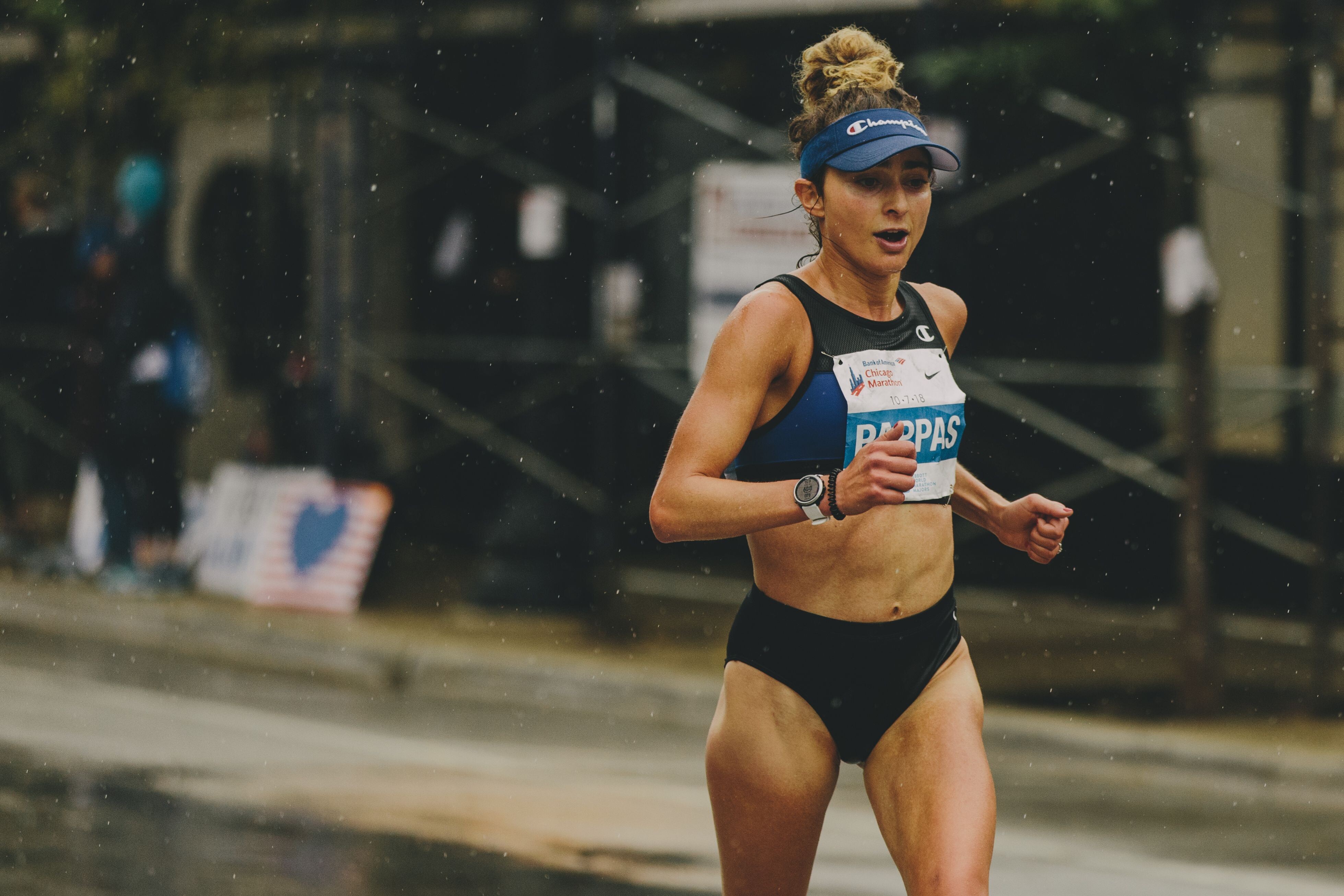
“I feel like there’s a period of time in your life as an athlete where you chase goals that you have for yourself. Maybe you have an Olympic dream. Maybe you want to run a fast mile. Then there’s a time when you can begin to embrace things that the universe brings to you, and not the ones you necessarily had in mind for yourself.”
She’s Still Immersed in Running
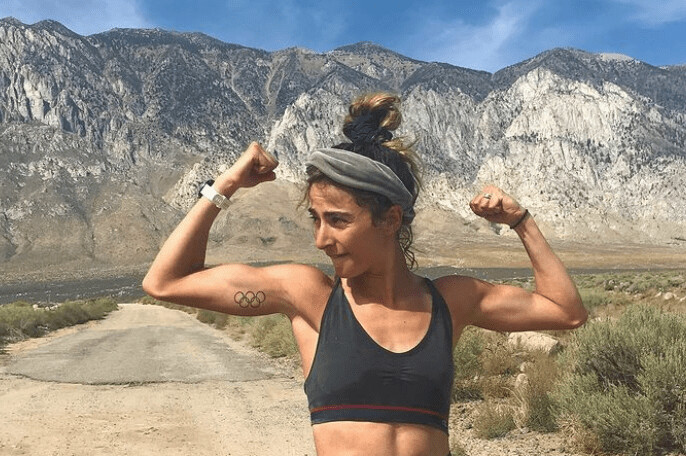
Pappas is a legit runner, having run that Olympic 10K at 5:05 mile pace and also clocking a 2:34 marathon in 2020. Although she’s backed away from competitive track and road racing, she’s still immersed in the sport in numerous ways. She ran the 2022 New York City Marathon in a custom bedazzled costume and paced Diplo, aka renowned DJ and music producer Thomas Wesley Pentz, through the 2023 Los Angeles Marathon in March.
Although she’s recently made a foray into trail running, Pappas, who lives near sea level in Alameda, California, admits that she’s less than perfectly prepared going into the Leadville 100. The out-and-back race, which begins at 4 A.M. on August 19 and has a 30-hour cutoff time, is situated between 9,200 and 12,500 feet above sea level.
“It’s a big honor [to be given entry into the race]. And it’s one I take seriously, but also I’m not in peak condition for this race. So I’ve been thinking a lot about it as a kind of mysterious unknown. What might happen? What might be possible? I do believe in myself.”
Pappas’ longest race to date is the Hoka Bandera Endurance Trail 100K, which she did in January. “For that event I entered the day before,” she admits. “So I didn’t have a crew. I didn’t even have a headlamp. I used my cell phone light.” Although she fared pretty well (finishing 12th in 12:08), Pappas learned that ultra events are more about solo adventure, with lots of other people solo-adventuring at the same time. Different from running in the pack on a track, where the whole point is to stay with the group.
And this time around Pappas will have a pacer, Michael Mitchell, and a crew to help her through aid stations and with motivation. “I feel like Michael is the right balance of personality and experience,” she says. “And my best friend since we were two-years-old will be there to crew, so I’ll have lots to look forward to. I figure we’ll make an event of it.”
Mitchell, accomplished On Running trail athlete and TikTok personality, is stoked to be part of Pappas’ race. “I am very excited to help Alexi attempt this incredible feat,” he says. “The Leadville 100 holds a special place in my heart as it was the first ultramarathon I ran.”
Mitchell’s experience in the race in 2021 solidified his love for the ultramarathon atmosphere and community. “I’m a fan of Alexi and all that she represents,” he adds. “Not only do I think she will be able to finish the race, but I know it will inspire her to continue her successes in the running world and beyond.”
Jumping at New Opportunities
Even though Pappas doesn’t feel perfectly prepared for what she’s about to embark on, that’s part of the fun. “I just don’t think this opportunity will happen for me again,” she says. “There are some opportunities that feel like you’ll be able to have them a million times. But this isn’t one of those. This is more like the Olympics. I have friends who said that about the Olympics—that they’d do it next time—and then their sport was taken out of the Olympics.”
Sometimes you have to jump at the chance, even when the thing you’re jumping at is 100 miles in the high alpine of Colorado.
Pappas lost her mother when she was just 4-years-old, and has a friend who has also lost a parent. “My friend told me that our parents would do anything to be in nature for one more day, and he suggested I think about that when [the race] feels long. To have gratitude for simply being alive in the beautiful outdoors, moving about nature, moving from one loving friend and food stop to the next, with plenty of trees in between.”
As soon as Pappas finishes Leadville, she’ll be onto the next thing, but she’s going to enjoy the journey as much as possible.
“I have a new book coming out two days after race day,” she says. “So I’ll come home and not be able to walk and just do the book release as well as I can.”
The book, Bravey, is an updated version of her 2021 New York Times best-selling memoir that’s been adapted especially toward young readers. She talks about unique experiences, like making her Olympic debut as a distance runner, but also common stresses like learning about compassion, forgiveness, and loss.
by Micah Ling
Login to leave a comment
Leadville Trail 100 Run
The legendary “Race Across The Sky” 100-mile run is where it all started back in 1983. This is it. The race where legends are created and limits are tested. One hundred miles of extreme Colorado Rockies terrain — from elevations of 9,200 to 12,600 feet. You will give the mountain respect, and earn respect from all. ...
more...Alexi Pappas gets a race named after her at San Francisco Marathon
2016 Olympian and renowned running author and influencer Alexi Pappas has joined forces with her hometown race, the San Francisco Marathon. On July 5, the San Francisco Marathon announced a multi-year partnership with Pappas, naming the 10K race in her honour.The race said in a statement: “We are delighted to announce the 10K will be now known as the Alexi Pappas SFM 10K, a race overflowing with excitement, fun, and of course, glitter!”Pappas has always had a strong connection to San Francisco’s Bay Area, growing up in nearby Alameda, Calif., and attending Bishop O’Dowd High School in Oakland. From there she went on to run at Dartmouth College and the University of Oregon before making the Greek Olympic team in the women’s 10,000m for the 2016 Rio Olympics.
“Like every other ten-year-old, I wished for my own 10k race. My wish has come true,” wrote Pappas in excitement on Instagram.
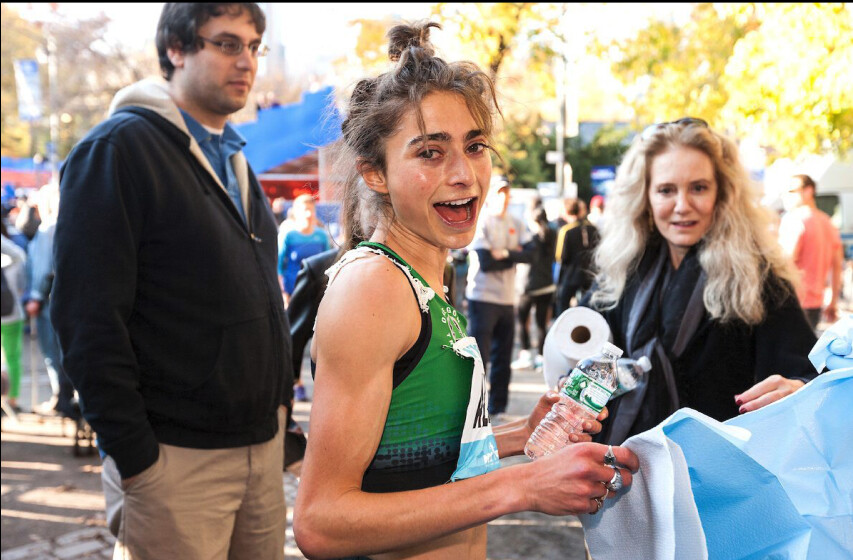
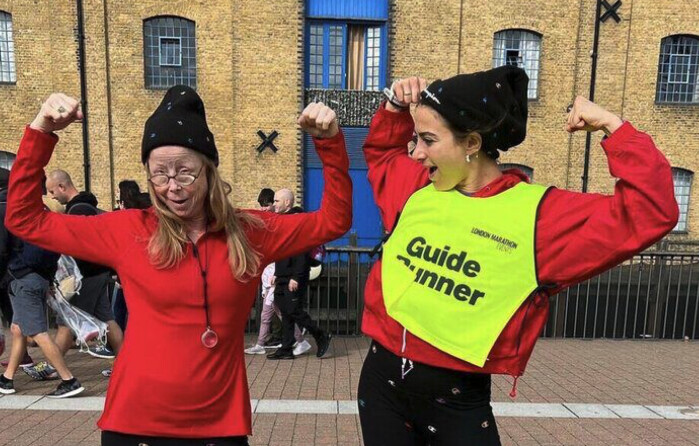
Despite hanging up her competitive racing shoes in 2020, Pappas has continued to use her platform to inspire other women and help make running an inclusive space for all. Throughout her career, Pappas has been outspoken about her struggle with depression, calling for better care of elite athletes’ mental health. In 2021, her first book, Bravey: Chasing Dreams, Befriending Pain, and Other Big Ideas, was published, highlighting her triumphs and challenges in sports and life, and encouraging readers to be “braveys” in pursuing their passions.The Alexi Pappas 10K race is scheduled to take place on July 23 as a part of the San Francisco Marathon weekend. The race will also have custom medals and T-shirts designed by Pappas.
by Running Magazine
Login to leave a comment
So It Turns Out Diplo Says He Ran the LA Marathon on LSD
Never try anything new on race day, unless you’re Diplo, I guess.
When Diplo ran the Los Angeles Marathon last weekend, breaking the four-hour mark with Olympian Alexi Pappas by his side, that was impressive enough. The 44-year-old DJ said he hadn’t done a proper marathon build in preparation; he was under-trained and pulled off a fantastic finishing time of 3:55:16 anyway. Now he claims the entire 26.2-mile footrace was one big acid trip.
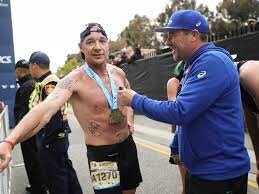
On Wednesday, he revealed in an Instagram post that, because the longest he’d ever run previously was 11 miles (technically untrue according to his previous half marathon results), “I did what any normal person would do and took LSD” (the psychedelic drug, not “long slow distance”). Before the marathon, he’d also shared his oddly specific goal—which he met—of beating Oprah’s 1994 PR, when she ran the Marine Corps Marathon in 4:29. Some folks call it “the Oprah effect.” Diplo brought some bravado to Instagram on that front as well, saying, “I ate that. Sorry Oprah.”
He went on to thank Pappas for pacing him, and said, “Shout out my knees which will never be the same, and my kids for waiting for me at the finish line. If anyone needs me I’ll be sitting down.”
It’s not unheard of to run under the influence of psychedelics. At the Burning Man Ultramarathon, a 31-mile run looping around Black Rock City four times, at least one runner has done the whole thing on LSD. Sarah Rose Siskind, told nonprofit media outlet Psymposia, “I did one training run where I ran 20 miles on LSD, and I found that the main problem was that I ran extraordinarily slowly — I was so distracted by everything. So, I figured it wasn’t a performance-enhancing drug, exactly. But, it certainly wasn’t increasing my risk profile.”
Another runner, Michael Versteeg, has spoken about incorporating psilocybin mushrooms into his experience running the Cocodona 250, a 250+ mile ultramarathon from Black Canyon City to Flagstaff, Arizona. Versteeg microdoses for his long runs and says while it’s not the same as full on tripping, “you’re experiencing colors, you’re experiencing the landscape in a much more vivid way.”
The trusted advice many runners abide by is “nothing new on race day,” but Diplo doesn’t exactly play by the rules.
by Runner’s World
Login to leave a comment
Olympian Alexi Pappas runs 2022 London Marathon as guide for Para athlete
Greek Olympian Alexi Pappas is known for being a remarkable athlete, but can also boast credentials as a renowned author, filmmaker, and mental health advocate. Pappas can now add guiding a para-athlete in two World Major Marathons to her resume after she teamed up with visually impaired athlete Lisa Thompson for Sunday’s 2022 TCS London Marathon (their second marathon together, after running the Boston Marathon in April).
You’ll want to savour every moment of Pappas’ video on Instagram as it encapsulates her experience with teammate Thompson.
Thompson, 54, is a Houston-based real estate agent and has no sight in her left eye and very little in her right eye. She can see the ground but she has no depth perception. Thompson began running as a child as a way to cope with the challenges visual impairment caused her.
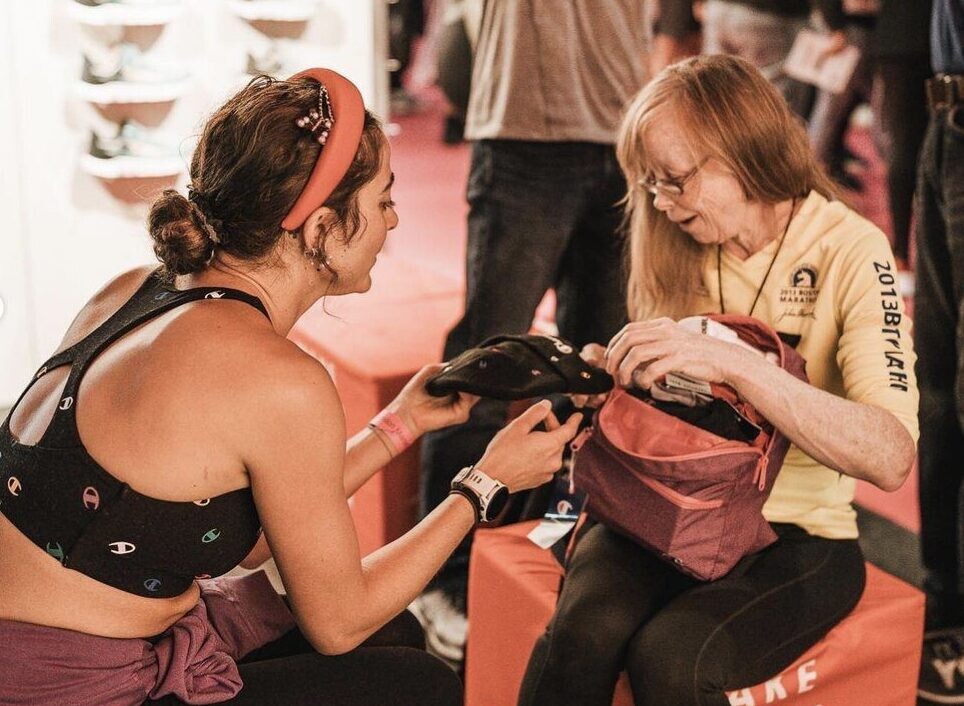
After experiencing some personal loss at age 40, a friend encouraged her to sign up for a race. Thompson completed her first half-marathon in 2008 and now has 27 marathons under her belt. In 2014, she ran a personal best of 3:16:50 at the Houston Marathon. Pappas and Thompson met through a mutual friend.
Thompson doesn’t need to run with a tether, but she does need someone to run alongside her. Despite some injury concerns heading into Boston, Thompson won the T13 (visual impairment) division in 3:47:25, with Pappas by her side. During Boston, Thompson dedicated every mile to someone in her life who passed away. She shared those moments with Pappas, and it strengthened the bond between them as teammates.
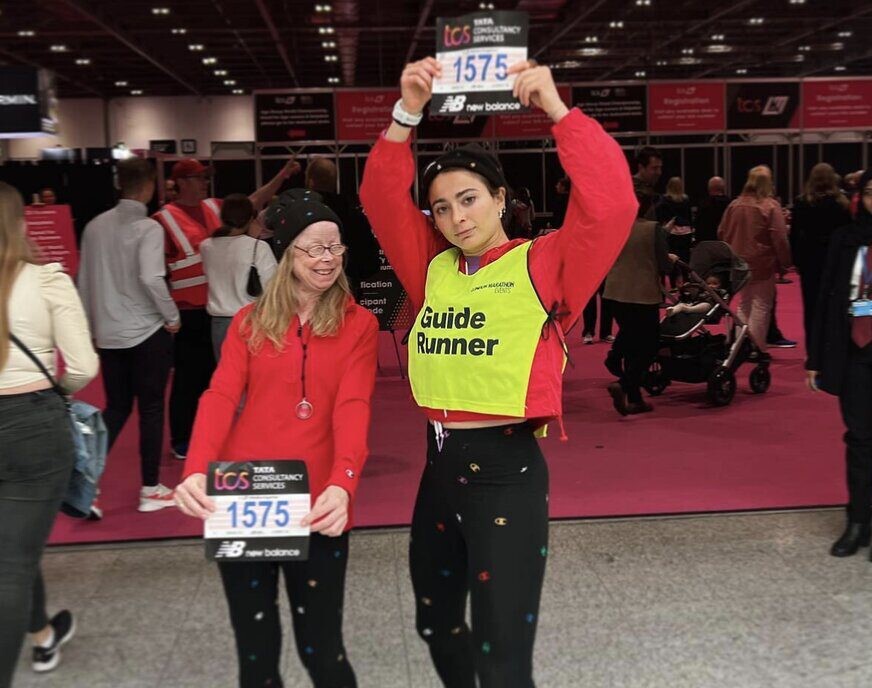
While Pappas has a marathon PB of 2:34, running as Thompson’s teammate at Boston was her first time experiencing the iconic race, while Thompson had successfully run it eight times before. Pappas and Thompson were both running the London Marathon for the first time, and crossed the finish line together in 3:59:18.
Before and after the London Marathon, Pappas took to social media to share her experience with Thompson, explaining that as Thompson’s teammate, she was, “an audiobook in a way.” Pappas points out people in unique costumes and uses metaphors to help guide Thompson through the crowds as they ran in both Boston and London.
“The runners are like an ocean,” Thompson and Pappas agree, discussing how hard it is not to get caught up in the crowds. “It takes a lot of confidence and composure to run your own race,” Pappas says. Pre-race, Thompson and Pappas agreed their goals were simply to enjoy the experience and to try to brighten someone else’s day
“Lisa and I soaked in all the accented cheers of the tree and people-lined streets. We loved the costumes. We loved the kids. We loved the chance to start right on the heels of the elite field,” Pappas shared after the marathon. “We were in a groove, having learned how to be teammates this spring in Boston. We were really good about tangents this time.”
“Running a marathon is like an orange: sometimes hard to get into but then wonderful, refreshing, messy, delicious. Good shared. Good alone. Happy Lisa and I were together today,” said Pappas.
Pappas and Thompson certainly achieved their goals at the 2022 London Marathon, becoming an inspiration for other runners along the way.
by Keeley Milne
Login to leave a comment
TCS London Marathon
The London Marathon was first run on March 29, 1981 and has been held in the spring of every year since 2010. It is sponsored by Virgin Money and was founded by the former Olympic champion and journalist Chris Brasher and Welsh athlete John Disley. It is organized by Hugh Brasher (son of Chris) as Race Director and Nick Bitel...
more...Feeling the post-race blues? It’s more common than you think
Most runners put in a lot of miles and hours of training (along with burning through more than a couple of pairs of shoes) before a big race. The build-up can be intense. Regardless of whether you run a PB or DNF, what happens mentally and physically after the race is just as important as your training. Post-race blues is a term coined by runners to describe the situational depression that impacts athletes, from amateur to professional.
Olympic athletes like Alexi Pappas have publicly discussed the depression they faced after their competitive events.
First things first: take recovery as seriously as you do running
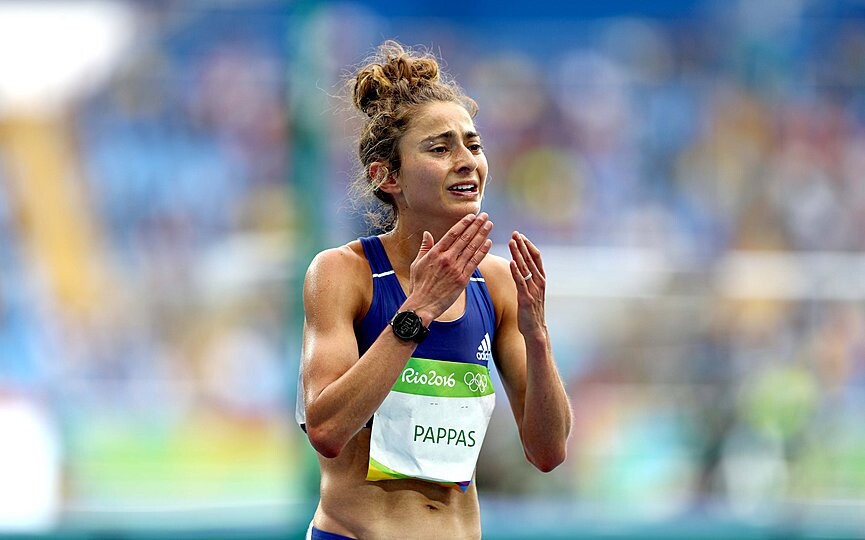
Few runners spend the time and energy on recovery as they do on workouts, but the recovery period is when your body actually gets stronger, rebuilding in order to perform again. Your body needs both rest and fuel to recover. Since you aren’t dedicating yourself to intense exercise, take some time to do some healthy meal prep or master some nutritious recipes. Trying a cooking class in person or online can be a great distraction, and you’ll enter your next training block armed with new skills.
Connect. With loved ones, with your yoga mat, with Netflix
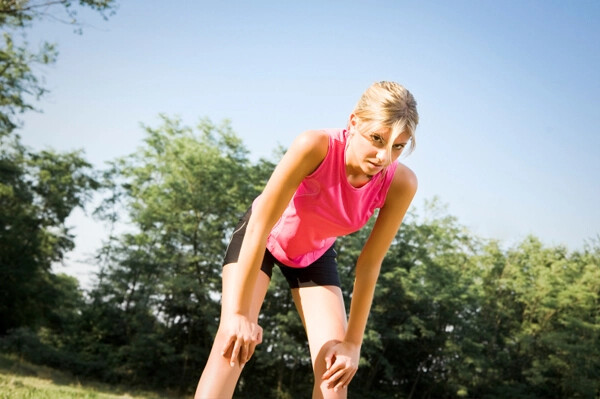
Training for a big event takes a lot of time and energy. Your family, friends, and yoga buddies have missed your regular presence in their lives. It is the perfect time to revitalize those relationships. Reach out, and try accepting offers to join activities even when you would rather hide indoors and analyze splits on Strava. It’s okay to find a balance, so if a movie night with your cat is calling your name, get cozy and turn up the volume. Enjoy the opportunity to fit in activities, however simple, that you don’t normally prioritize.
Get your mind off of running
Always wanted to learn conversational Spanish or take an avalanche safety course? Yearning to plant your own vegetables? Even though you may be feeling unmotivated, taking the first steps toward trying out a fun new hobby can have monumental results. After all, you once went out for your very first run, right? Your local library can be a good place to find resources, and often will offer courses on a variety of new things to try.
Think long-term
Whether you hit or missed your goals in your last race, you most likely have future races on the horizon. Revisit your targets and tweak your future running plans, evaluating what worked (or didn’t) this time. When you feel both physically and mentally ready, get that run-excitement simmering by mapping out new running adventures to tackle in the months and years to come.
Be proactive about your health, mental and physical
Post-race blues may be a minor speed-bump to overcome, but it’s important to stay pro-active with any health challenges that you encounter. Pappas writes: “And then when my doctor helped me understand that my brain was a body part, just like my leg, and it could get injured like any other body part, and it could also heal like any other body part.” Taking positive steps to maintain a healthy mind is no different from seeing a sports doctor to treat a running injury.
by Keeley Milne
Login to leave a comment
None of us would dispute that running makes us happy. But it's also clear that it's not a panacea
“It was running or Zumba,” says James Duncan of Montreal (not his real name), when asked why he started running. Back in 2018, when he first experienced symptoms of depression and anxiety, a friend suggested he take up a new activity. He was attracted to running as an individual sport without too much pressure: “No one expects me to win, so it seemed like a good option,” he says. But Duncan quickly discovered he could do more than he thought, so he registered for his first 5k race. “It gave me a sense of achievement, some sort of purpose,” he says. “It forced me to get up on days when I just wanted to stay in bed.”
Cut to June 2020, when Duncan proudly ran his first unofficial (and entirely unplanned) half-marathon – in the middle of the night. Getting up at 3:30 a.m. after a bout of insomnia, he went out for a quick run to watch the sunrise over the St. Lawrence River, and had his first runner’s high: “It just felt good,” he says. “So I kept running.”
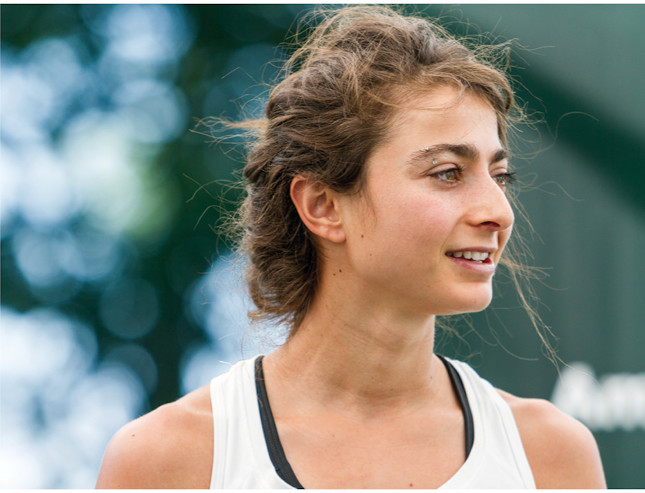
Is runner’s high what kept him running over the past two years? Duncan is clear: “To be honest, that’s only ever happened to me once. Running gives me a way to stop thinking about everything else for a while. When I run, I just focus on my breathing. It’s almost like meditation. And the social connections I got from being part of a running group also really helped me.”
Although thousands of people have taken up running for the first time during the pandemic, COVID has put a damper on group running, so the mental-health boost from socializing with other runners has been absent for most people over the past year. This has given rise to a particularly COVID-specific type of mental distress: loneliness. A recent Angus Reid survey found that almost a third of Canadians report suffering from loneliness and social isolation – and this figure rose 10 per cent between October 2019 and October 2020. (Those reporting that they had “a good social life” dropped from 55 per cent to 33 per cent during the same period – and there are probably a fair number of runners among those numbers.)
With the prospect of a gradual return to normality thanks to vaccination, runners are tentatively signing up for races (where they can find them) and reconnecting with their groups, while solo runners whose motivation to train never flagged are cheered by the approach of spring. Research has repeatedly demonstrated the many mental health benefits of running and exercise, and that has never been truer than now.
But running obviously isn’t a guarantee against anxiety, depression or loneliness. Runners of all levels struggle with mental health issues, while also experiencing running as a mood-booster, at least some of the time. Elite athletes like Canadian ultrarunner Rob Krar, U.S. runners Alexi Pappas, Amelia Boone and Molly Seidel have shared their experiences with anxiety, depression, obsessive compulsive disorder (OCD) and eating disorders in an effort to reduce stigma, and their candour has led to recognition of the need for dedicated support. And while mental performance coaches have for decades helped pro athletes deal with negative mental habits that impede performance, there’s a difference between mental performance and mental health; psychotherapists are only recently becoming an essential part of the team as well. This was brilliantly demonstrated in April last year as Canadian sports groups and associations united to create a dedicated mental health task force to support athletes after the postponement of the Tokyo Olympics. All of which raises the question: if elite professionals, who spend a large portion of their days training, are experiencing anxiety and depression, is exercise really as beneficial for mental health as we thought?
The relationship between running and mental health is both subtle and complex. Multiple studies have demonstrated the crucial role of exercise in well-being. Sport psychology expert, Olympian and dean of the University of Calgary’s faculty of kinesiology, Penny Werthner, says, “Movement is critical for both mental and physical health. There are physiological and neurological changes that occur when we move, when we run and become fitter.” Achieving running milestones (which, depending on the individual, may mean anything from simply getting out the door to setting a new marathon PB) can boost confidence and motivation, foster a sense of accomplishment and improve self-esteem – all of which boost mental health. But it’s only part of the picture: “I would argue that exercise and movement can always help,” says Werthner, “and it would be wise to incorporate them into a treatment plan, along with other treatments, such as cognitive behaviour therapy.”
HOW NEW RUNNERS CAN BENEFIT
If you’re a new runner who’s embraced the sport because you’ve heard of its widely touted mental health benefits, it may not be quite that simple. It may take time to build up the fitness that will allow you to reap any significant mental health benefit. (One study found that running at a moderate pace for 30 minutes produces a much higher increase in the neurotransmitters known as endocannabinoids, which researchers believe may be more responsible for running’s mood-boosting properties than endorphins, than either walking or running at maximum intensity – and it may take some time for a non-runner to be able to run continuously for 30 minutes.) Obviously, the risk for new runners is taking on too much too soon, which is likely to deprive them of any mental health benefit they might have derived from running because they are sidelined with an injury. Werthner suggests reaching out to a trainer or coach to get started in a way that’s appropriate to your fitness level and goals.
Another pitfall for new runners is that running can very easily become a chore, adding nothing to one’s mental health (and possibly compromising it). For running to make you happy, it should be carefree and liberating (as it is for Duncan). It doesn’t mean having to run a marathon – by all means, start training for a marathon if all of the following are true: you’re healthy, that goal excites you and you have support for it from the people in your life whom it may impact. Marathon training and recovery are time-consuming. Most plans recommend starting with some 5k, 10k and half-marathon races to build a base of fitness, which generally means putting off marathon training until you’ve been running for at least six months to a year. Don’t compare yourself to others you see on social media, posting about their running accomplishments, and remember that there are no shortcuts to athletic greatness – elite athletes have years of training (and plenty of failures) behind them.
Whether you start with a few minutes of running and walking or a more ambitious regimen, check in with yourself regularly. “The best gift you can give yourself is to be aware of your own needs,” says Kim Dawson, mental performance consultant and professor at Ontario’s Wilfrid Laurier University.
EXPERIENCED RUNNERS: BALANCE IS KEY
Experienced runners who decide to take on a new running goal may also be at risk of biting off more than they can chew, says Dawson, who suggests runners think carefully about the possible mental health implications of a new training plan: “Be aware of what you are sacrificing,” she says. “Choose a running program that fits your lifestyle and allows for a healthy amount of training, while giving you room for growth in other areas of your life, such as your professional development, social connections and emotional well-being.” While often challenging, running should still be fun, at least most of the time. Regularly ask yourself whether you still look forward to getting out for a run. If not, it may be time to take the intensity down a notch or find a challenge more suited to your current state of mind.
DEALING WITH INJURY
Healing an injury can be a long, emotionally difficult process that sometimes involves giving up short-term goals, such as a much-anticipated race. That is likely to have an impact on your mental health, at least in the short term. The pandemic certainly hasn’t made dealing with injury easier. Being forced to take a break from a much-enjoyed activity is hard enough; doing it without the mood-boosting brain chemicals provided by alternative forms of exercise at facilities that aren’t accessible during lockdown can make recovery that much more difficult. Once again, Dawson suggests focusing on the other areas of your life that bring you joy. It also helps to seek out a supportive friend, or possibly a mental health professional, with whom to talk about the situation.
WHEN RUNNING IS PART OF THE PROBLEM
Finding balance may be a particular challenge for pro runners, for whom training is the biggest part of their daily life. Canadian half-marathon record holder Andrea Seccafien is from Guelph, Ont. but lives and trains in Melbourne, Australia. For Seccafien, feelings of isolation during the first lockdown in 2020, when she couldn’t work out with her teammates and she was a long way from home, were compounded by anxiety about the virus. That impacted her performance, which led to further anxiety, which led to the decision to take a month-long break from the sport last May. “I so badly wanted this to be a physical problem,” Seccafien told Canadian Running in January 2021, adding that she was prepared to deal with an iron or thyroid deficiency. But healing a mental health injury is no different than healing a running injury, and the solution usually isn’t more running, but its opposite – rest. (And treatment by a trusted health professional.)
Alexi Pappas, who was raised in the U.S. but hopes to run for Greece at the Tokyo Olympics, has a similar story, which she tells in her recent book, Bravey: Chasing Dreams, Befriending Pain, and Other Big Ideas. Pappas’s mental health took a nosedive after the 2016 Olympics, where she competed in the 10,000m, setting a new national record for Greece. Instead of taking a well deserved and much needed vacation before setting new goals for the next Olympic cycle, she felt compelled to continue training. And after getting a distribution deal for her first film, Tracktown, she felt pressure to produce another film. There were also deeper psychological issues having to do with her mother’s death by suicide when Pappas was a young child, and she spiralled into insomnia and depression. It was a year before her father finally persuaded her to seek treatment, which was ultimately effective.
Professional athletes have the added pressure of having their performance tied to their livelihood, but recreational runners are not immune to overdoing it to the point of burnout. “The key,” says Dawson, “is to maintain a holistic identity. And this is valid for everyone, professional athlete or not. You are a person first, who happens to run.” It’s important to keep developing other areas of your life, which may include time with family, building a career or pursuing another hobby that you’re passionate about.
Duncan, for his part, still runs four to five times a week and regularly attends therapy sessions. “It’s not a magic pill,” he says of running. “You have to find out what works for you. But it’s definitely been an adventure. You never know where you’re going to end up.” He smiles. “Could be on a riverbank, watching the sun rise at 6 a.m. after running 21 kilometres.”
by Apple News
Login to leave a comment
Five Things We Learned from Alexi Pappas’ Memoir, Bravey
Pappas crafts a tradition of mentorship by passing along the lessons she’s learned.
After surviving a gritty, jaw-clenching 2020, Bravey feels like a giant exhale. In her memoir, Alexi Pappas, the 2016 Olympic 10,000-meter runner representing Greece, explores the corners of her mind to acknowledge what and who have made her who she is. In the writing you see her background as an improvisational actor take the reins as she learns and grows, adding on a piece of herself to every bit of advice she receives in a “yes, and” fashion.
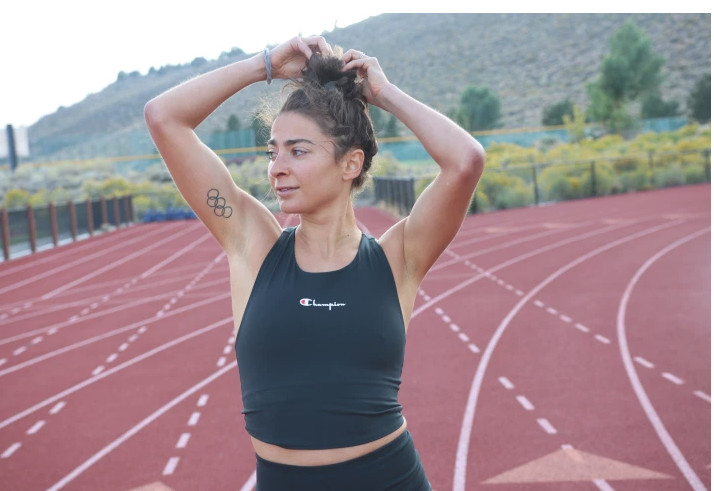
“Like a buffet. I want all the shrimp, all the pasta, and all the chocolate fondue. I don’t have the one person; I have every person,” she writes. “My selections might not all make sense on a plate together, but I crafted this meal; it is mine, and I love it.”
And in turn, we the readers get to learn about creativity, achieving, grieving, and womanhood as we meander Pappas’ wise and beautiful writing. Here are five things we learned from reading Bravey by Alexi Pappas:
Don’t wait for your defining moment.
It won’t come.
In between every chapter of the book, Pappas inserts a poem that adds a splash of color to the point she is making. This poem says it all: “I admire pickles because there is no one moment / that makes a pickle / a pickle, it is a thing that happens over time. / pickles are patient.” There won’t be one moment where you are transformed into who you are meant to be. You are already that person and every step you’ve taken has brought you here.
Welcome your nervous energy.
“I realized that it was OK to be nervous about the Olympics ending,” writes Pappas in reflection of a deep depression she went into after the 2016 Rio Olympics concluded. “Nerves are cousin to excitement, and excitement is cousin to gratitude. Pay attention to your nerves: If you feel nervous, it’s a sign that a Very Big Thing is unfolding. Be nervous for how good that thing can be.” Don’t shove those nerves aside and pretend they aren’t there. Embrace and learn from them.
The best way to achieve your goals is to say them out loud.
“Sharing your goal in this way puts you in the brave but vulnerable position of admitting that you want something. The goal is now out in the world, breathing open air and growing into something real. Once the goal is real, you will undoubtedly become more accountable to it,” writes Pappas.
Pay attention to what motivates your ambition.
After working hard on her mental well-being, Pappas realized she had been “motivated by running away from failure instead of running toward opportunity.” She adds that “being motivated by fear of failure is the surest way to fail, especially in the athletic and creative worlds.” Are you running toward your next PR or away from a bad finishing time? Next time you’re setting goals, try exploring why you want them.
But be mindful about how you talk about your experiences.
“How you talk about your experiences will dictate how you feel about them,” writes Pappas. “Reframing our goals and rewriting our stories are powerful tools. Nobody can tell us how to feel about something. We can make our shortcomings into something beautiful if we want to. How we label an experience can completely change how we perceive it.” Pappas gives the personal example of when she ran her first marathon after the Rio Olympics. At about mile 10 a previous injury began to flare up and she began to realize that she was not going to keep up her target pace. But in her own mind she was able to reframe her goal to just reaching the finish line. And while afterward the press prodded to get her to admit disappointment in her finishing time, she could only be genuinely happy that she reached her goal of finishing.
by Women’s Running
Login to leave a comment
Deena Kastor is still getting American records and now owns the american W45 record in 8k
Thirteen years after she ran her American marathon record of 2:19:36, Deena Kastor is still setting American records. On Sunday afternoon at Chicago’s Shamrock Shuffle, the 46-year-old ran an American masters 8K record of 27:12, besting the previous mark held by Carmen Troncoso at 27:45.
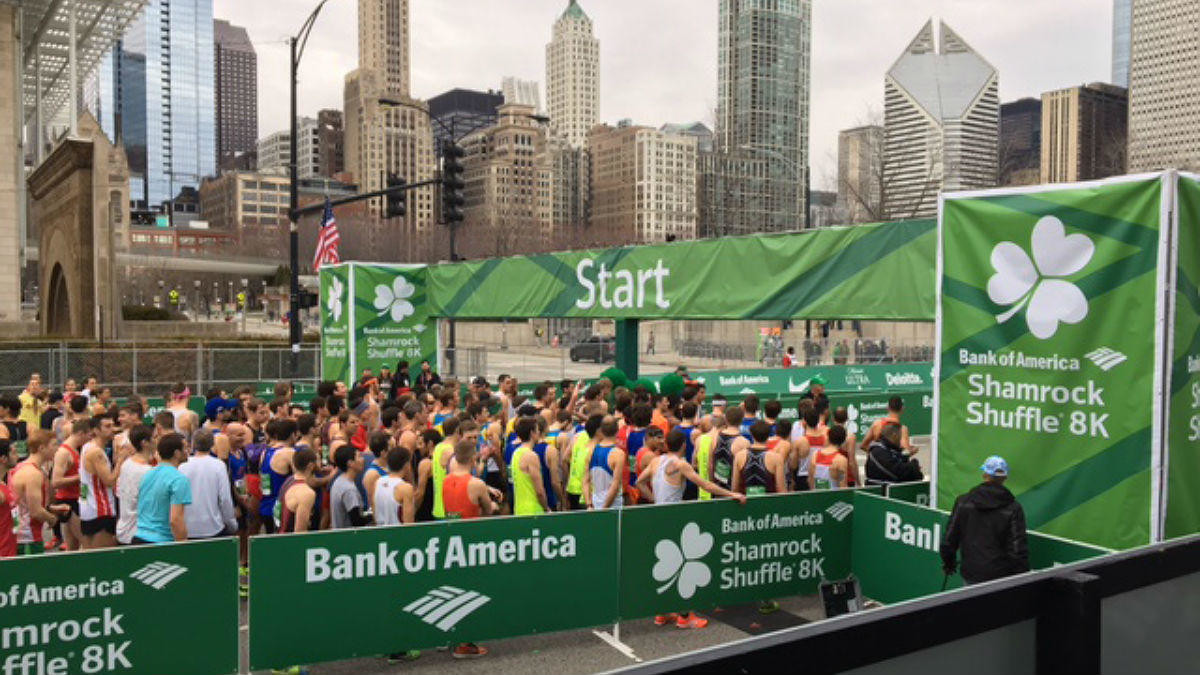
Kastor also holds the outright national record at this distance (24:36), and she set it at the same race, back in 2005. This time though, it looks like she didn’t set out with the goal of breaking the master’s record–it just happened.
Kastor struggled recently at the Tokyo Marathon, finishing in 2:51:58 in cold, wet conditions that some said rivalled those at last year’s Boston Marathon. It was her fifth of six Abbott World Major Marathons, the final one being Berlin, which she may race in September.
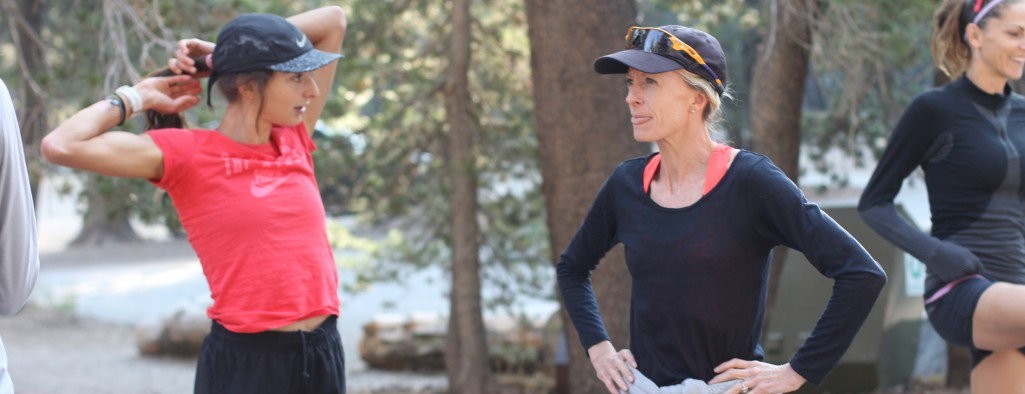
Deena says this on her website. “As an athlete I’ve found aside from hard work, the greatest tools for success are optimism and gratitude.These practices have led to happiness and the routine pause to realize I’m living the life I love and dreamed of.”
She continued, " I have been running since I was 11 years old and have learned over the years that there is no greater influence on success than the power of optimism. When we are positive, we master our physical potential. The power of our own thinking can open doors and elevate our performances. With optimism I have been able to pursue every goal, win medals, earn American and world records, but more importantly, I’ve been able to be resilient in the face of injury and falling short. Optimists are dreamers, believers and solution seekers. I believe that these lessons are universal and not running exclusive."
She goes into details in her new book Let Your Mind Run.
Login to leave a comment
B of A Shamrock Shuffle 8K
The Shamrock 8k is a huge celebration of the beginning of running season. It is the world's largest timed 8k, starting and finishing in Chicago's Grant Park. Runners feel the energy of over 30,000 runners and a big cheering crowd (present during the entire course.)The excitement lasts throughout the after-party, where participants find beer, food and live music. The flat...
more...Greece Olympian Alexi Pappas new movie Olympic Dreams will premiere in Austin Texas March 8-17
Greek runner Alexi Pappas’s new film, Olympic Dreams, will premiere in the Narrative Spotlight category at the SXSW film festival in Austin, Texas from March 8-17. Pappas, who set a national record for Greece in the 10,000m at the 2016 Olympics in Rio and ran her first marathon in Chicago in 2018, co-directs and stars, as she did in Tracktown in 2016.
The new film, which was shot during the 2018 Winter Olympics in Peongchang, is a series of vignettes featuring Penelope (played by Pappas), a slightly insecure cross-country skier, and Ezra (played by comedian Nick Kroll), a volunteer dentist in the Olympic village.

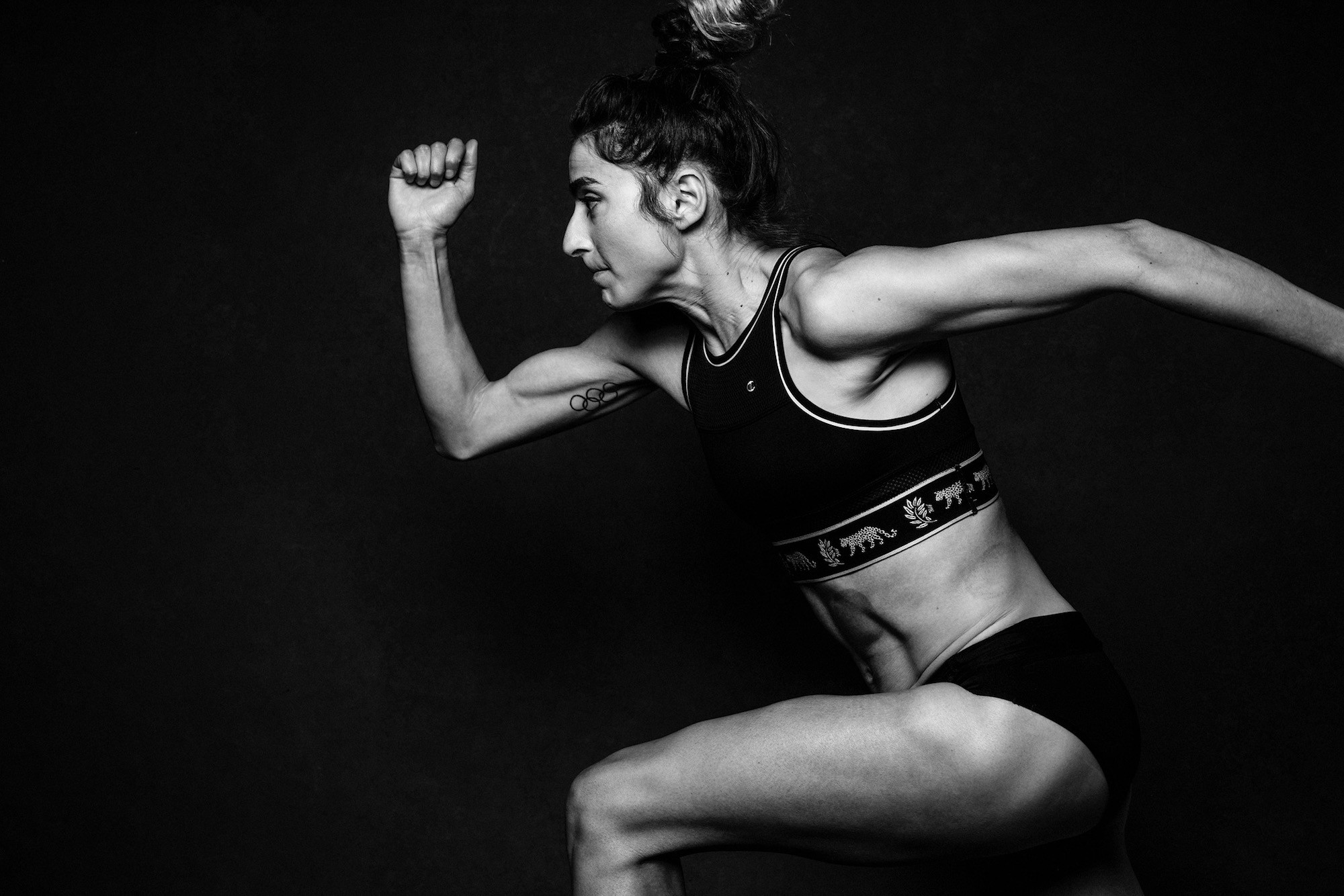
Pappas is an alumna of both Dartmouth and Oregon, and has always loved to indulge her creative side while also competing on the track. Pappas is reportedly hoping to run the marathon at the 2020 Olympics, representing Greece.
Login to leave a comment
Tokyo 2020 Olympic Games
Fifty-six years after having organized the Olympic Games, the Japanese capital will be hosting a Summer edition for the second time, originally scheduled from July 24 to August 9, 2020, the games were postponed due to coronavirus outbreak, the postponed Tokyo Olympics will be held from July 23 to August 8 in 2021, according to the International Olympic Committee decision. ...
more...Alexi Pappas gets set to make her marathon debut at Chicago Marathon
Login to leave a comment
Olympian Alexi Pappas to Run 2018 OneAmerica 500 Festival Mini-Marathon
Login to leave a comment


